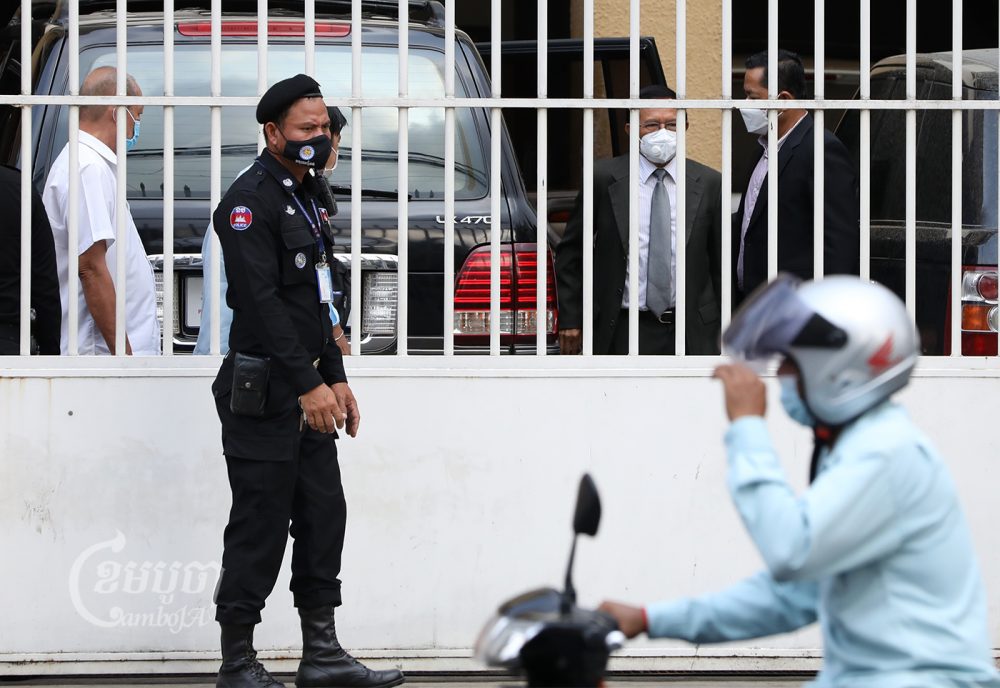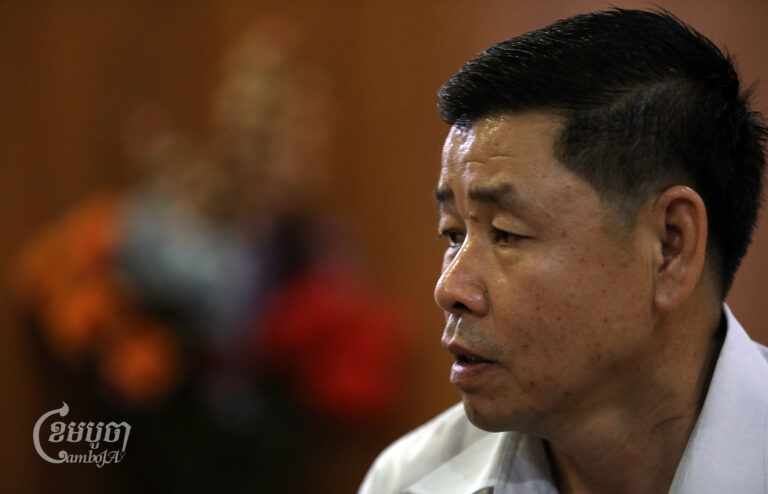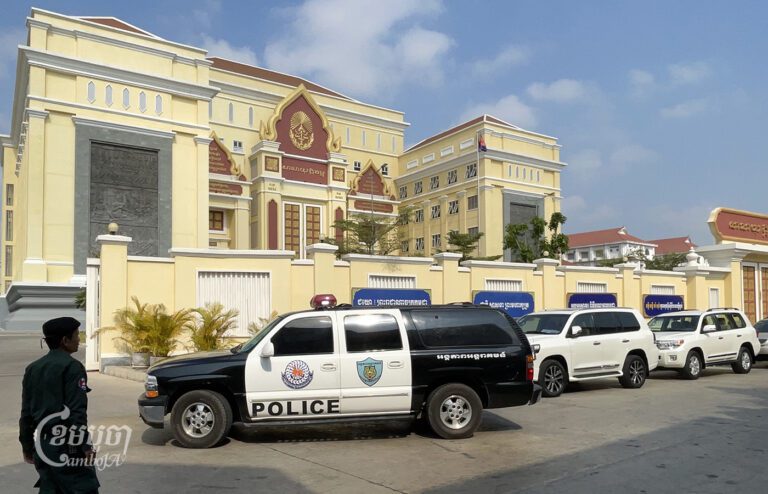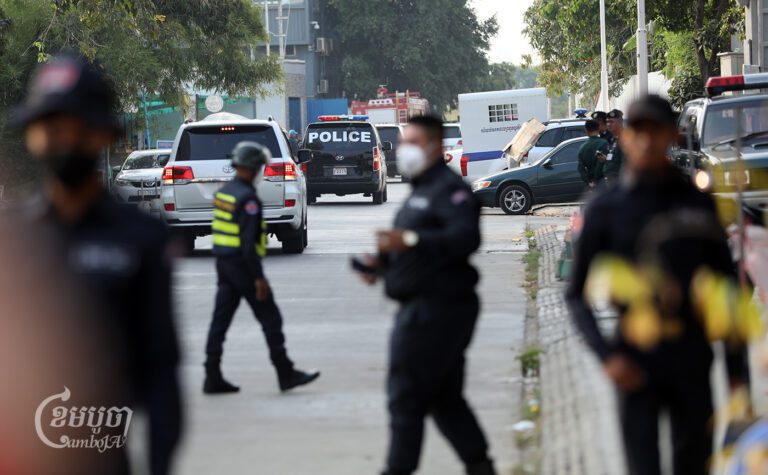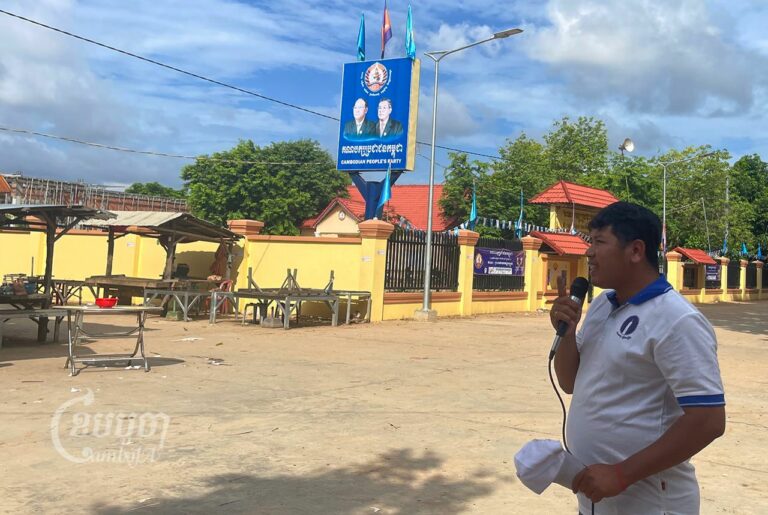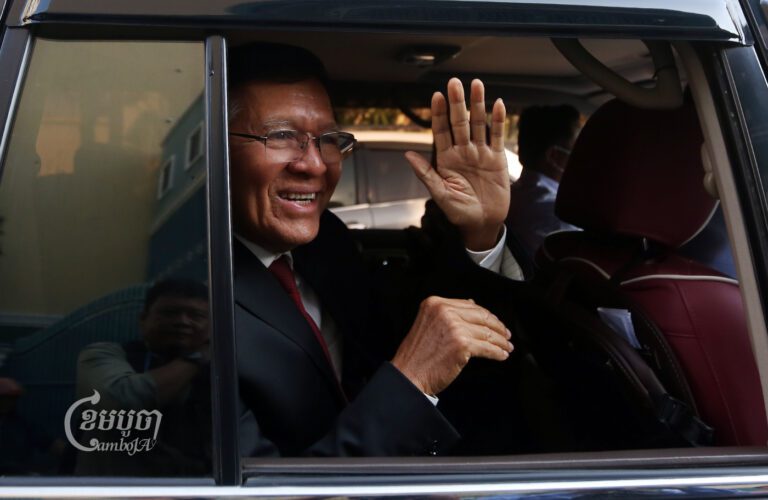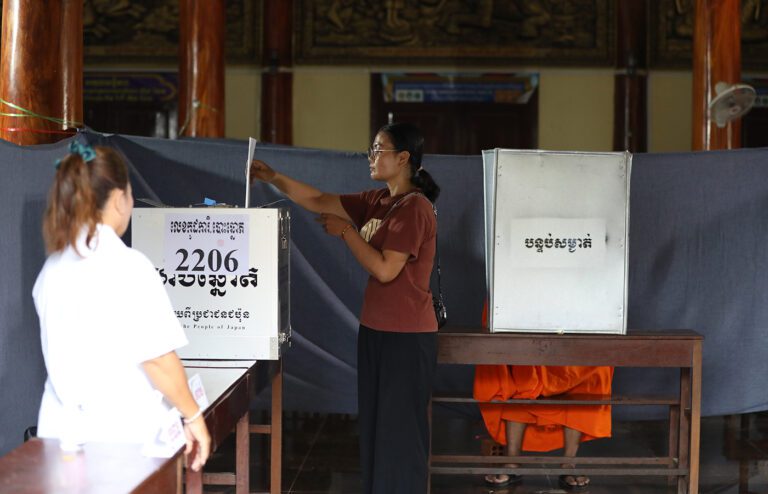The trial of opposition leader Kem Sokha resumed Wednesday, with the defence and prosecution arguing over what evidence should be allowed to be submitted and what thrown out.
Sokha’s long-awaited treason trial was delayed earlier this month after a member of the prosecution tested positive for COVID-19. The case against him had already been suspended since March 2020 – ostensibly due to the pandemic.
Sokha, 68, who was originally under house arrest but is now out on bail, attended the hearing. He was arrested in September 2017 and charged with conspiring with a foreign power, which could see him receive up to 30 years in prison.
The state has accused him of working with the U.S. to attempt a so-called “color revolution” to overthrow the government of Prime Minister Hun Sen. Sokha maintains he only acted legitimately while running an election campaign.
Wednesday’s hearing saw lawyers wrangling over evidence, with Phnom Penh Municipal Court deputy prosecutor, Plang Sophal, requesting the judges withdraw 16 pieces of evidence submitted by the defence.
He said the evidence – which included video clips and reports by rights groups like Licadho, Comfrel and Transparency International regarding irregularities in voting lists and at polling stations – had not been submitted in time.
For their part, the defence asked the judge to remove videos presented by the prosecution as evidence Sokha intended to overthrow the government.
The state has pointed to one video of Sokha saying he’d received advice from the U.S. about how to lead an opposition movement.
Chan Chen, one of Sokha’s lawyers, called on the prosecution to give the exact dates, months, and places where his client had allegedly colluded with foreign states.
Presiding judge Koy Sao said he would announce his decision on what evidence he’d accept and what he would throw out next Wednesday when the hearing resumes.
Soeng Senkarun, a senior investigator at rights group ADHOC, who attended the trial, lamented the fact the court was spending a lot of time debating what evidence can be submitted, causing a delay to further proceedings.
“It took a lot of time to discuss the evidence, and we don’t know how long the actual trial process will take,” he said.
“Civil society does not want to see the use of the court system against politicians and political activists just because they ran for office,” he added.
The CNRP was dissolved in 2017 by the Supreme Court, with scores of party members arrested on what are widely believed to be politically-motivated charges. Top leaders like Sam Rainsy and Mu Sochua went into exile and more than 100 members were barred from political participation for five years.


